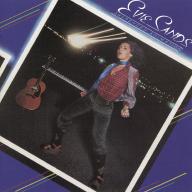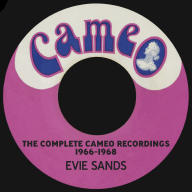Evie Sands
from Brooklyn, NY
Biography
Singer Evie Sands endured one of the more remarkable hard luck tales in pop music lore -- time after time, her records seemed poised for chart success, only to fall prey to industry whim. The Brooklyn-born Sands' husky, soulful voice first attracted the attention of Jerry Lieber and Mike Stoller's Blue Cat label in 1965, and upon signing with the company she entered the studio with the songwriting/production team of Chip Taylor and Al Gorgoni to record her debut single, Take Me for a Little While. Prior to the record's release, a test pressing was smuggled to executives at Chess Records, where Chicago soul singer Jackie Ross immediately cut her own version of the song; just as Sands' rendition of Take Me for a Little While cracked the R&B charts, Chess' marketing muscle assured that Ross' cover began receiving the lion's share of radio airplay, leaving the original in the dust. (Ross, it should be noted, was initially unaware of any competing versions of the song and left Chess soon after.) The confusion and subsequent litigation severely hobbled Sands' fledgling career, and her follow-up, 1966's superb I Can't Let Go, was lost in the mire; a year later, the song became a major international hit for the Hollies. Moving to the Cameo label, in 1967 Sands resurfaced with the Taylor-penned Angel of the Morning; despite heavy early airplay, within weeks of the single's release Cameo went bankrupt, allowing Merilee Rush's recording of the song to top the pop charts a few months later. In 1969 Sands finally notched a hit of her own with Any Way That You Want Me, also issuing an LP of the same name. She spent the majority of the following decade focusing primarily on songwriting, however, and after completing the 1979 RCA album Suspended Animation retired from performing altogether. In 1996, Sands joined Taylor onstage during a gig in Los Angeles, the impromptu reunion proving so successful that they agreed to re-ignite their collaboration; the album Women in Prison, distinguished by a far more rootsy feel than her blue-eyed soul near-hits of the 1960s, followed in 1999. ~ Jason Ankeny, Rovi
Top Tracks
Albums
Videos
Close

















